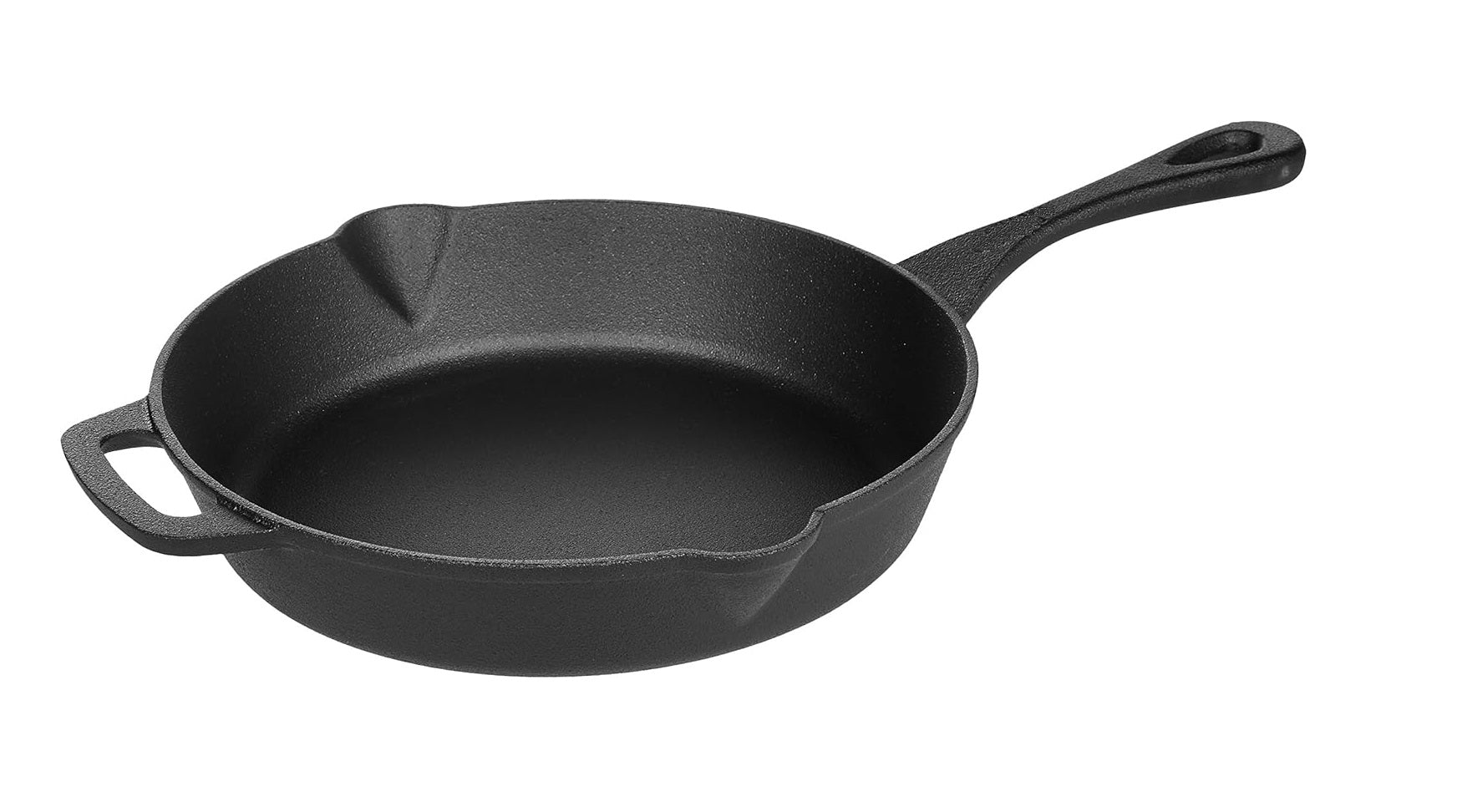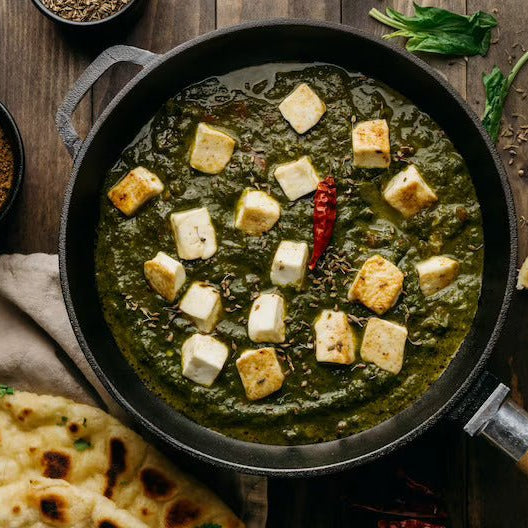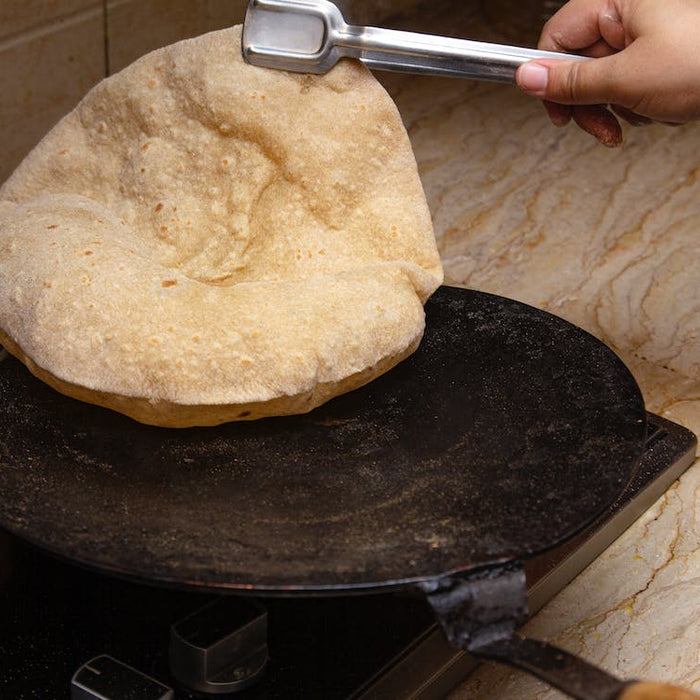
Cast Iron Cookware Seasoning - How often do you season cast iron?
Cast iron cookware has stood the test of time as a kitchen staple, known for its durability, even heating, and versatility. However, to maintain and enhance its performance, seasoning plays a crucial role. In this blog, we delve into the intricacies of cast iron seasoning, exploring what it is, how it differs from oiling, the advantages of using cast iron cookware, and why MACclite stands out in the world of cast iron.

What Is Cast Iron Seasoning?
Cast iron seasoning refers to the process of treating the surface of the cookware with oil and heat to create a protective layer. This layer, often polymerized, not only prevents rusting but also imparts a non-stick quality to the cookware. Over time, as the seasoning builds up, the cookware becomes more resilient and develops a unique flavor profile, making it a favorite among seasoned chefs and home cooks alike.
Defining Seasoning
Seasoning involves applying a thin layer of oil (commonly vegetable oil or flaxseed oil) to the surface of the cast iron and then heating it to a specific temperature. This process encourages the oil to bond with the iron, creating a durable coating that protects against rust and corrosion. The result is a well-seasoned pan that not only cooks food more evenly but also becomes easier to clean.
Seasoning vs. Oiling
While oiling a cast iron pan may sound similar to seasoning, there's a subtle difference. Seasoning involves heating the oil to a point where it undergoes polymerization, forming a solid, protective layer. Oiling, on the other hand, is a simpler process that only involves applying a thin coat of oil without the extended heating. Seasoning is a more comprehensive method, transforming the oil into a resilient layer that enhances the cookware's performance over time.
Why Cast Iron Cookware
Cast iron cookware has long been cherished for its ability to retain and distribute heat evenly. This makes it ideal for a wide range of cooking techniques, from searing and frying to baking and roasting. Its durability and timeless appeal contribute to its popularity, often passing down through generations. The non-stick surface developed through proper seasoning further adds to its allure.
Why MACclite
In the realm of cast iron cookware, MACclite has established itself as a standout choice. This premium brand takes seasoning to the next level, utilizing advanced technology to enhance the process. The result is a cookware surface that boasts exceptional non-stick properties, easy maintenance, and prolonged durability. MACclite's commitment to innovation sets it apart, making it the go-to choice for those who value both tradition and cutting-edge technology in their kitchen.
Conclusion
Seasoning cast iron cookware is not just a maintenance task; it's an art form that enhances the performance and longevity of these culinary workhorses. Choosing high-quality cookware, such as MACclite, ensures that you're not just seasoning – you're investing in a cooking companion that will stand the test of time while delivering exceptional results in the kitchen. So, how often should you season cast iron? The answer lies in the pursuit of a well-loved, perfectly seasoned pan that elevates every culinary creation.
See below our Bestsellers of Cast Iron Cookware 👇
Featured collection
-
Original price - Original priceOriginal price Rs. 19.99Rs. 19.99-Current price Rs. 19.99
Product title
Original price - Original priceOriginal price Rs. 19.99Rs. 19.99-Current price Rs. 19.99 -
Original price - Original priceOriginal price Rs. 19.99Rs. 19.99-Current price Rs. 19.99
Product title
Original price - Original priceOriginal price Rs. 19.99Rs. 19.99-Current price Rs. 19.99 -
Original price - Original priceOriginal price Rs. 19.99Rs. 19.99-Current price Rs. 19.99
Product title
Original price - Original priceOriginal price Rs. 19.99Rs. 19.99-Current price Rs. 19.99 -
Original price - Original priceOriginal price Rs. 19.99Rs. 19.99-Current price Rs. 19.99
Product title
Original price - Original priceOriginal price Rs. 19.99Rs. 19.99-Current price Rs. 19.99 -
Original price - Original priceOriginal price Rs. 19.99Rs. 19.99-Current price Rs. 19.99
Product title
Original price - Original priceOriginal price Rs. 19.99Rs. 19.99-Current price Rs. 19.99
Blog posts
-
-

What is Karahi or Kadahi? Exploring Its Best Use in 2024 | Non Stick
The kadai or karahi holds a special place, when it comes to Indian cooking,choose MACclite kadai cookware for a healthier and more enjoyable cooking experience.Read now -

Best Tawa for Roti 2024 - Guide to Choosing the Best Iron Tawa for Your Family
The roti tawa is the right tool to achieve the ideal texture and taste. Finding the perfect roti tawa for your family can be both rewarding and challenging in 2024 due to the many options available.Read now


